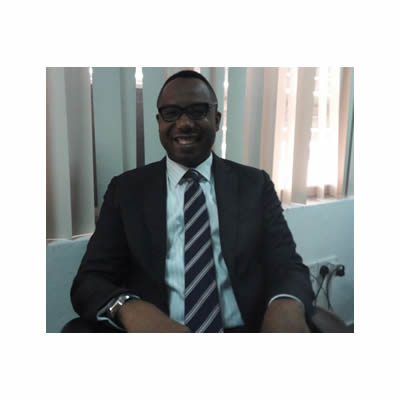Member Story: Ismail Omamegbe MCIPR, FICRS, Head of Corporate Responsibility and Sustainability, First Bank of Nigeria
How did you get into CRS, and why did you choose this profession?
It has always been my dream to work in a marketing communications company to enable me to express my creative talent apart from just writing poetry. So, I started my career in a marketing communications firm M2DC with competencies that include producing financial reports, sustainability reports, and collaterals for blue chip companies, including British American Tobacco, MTN, and CitiBank Nigeria.
My passion for empowering people channelled me more towards the sustainability elements of the company. Still, the exciting aspect of my journey is that it also gave me the flexibility to write two poetry collections, with the first collection - the Labyrinth of Hope, winning the best poetry prize in Nigeria, the ANA Cadbury prize for poetry in 2002 and the second, The Colours of Seasons recognised as one of the top 11 books in Nigeria by the Nigeria Prize for Literature in 2005.
I received an MA in International Relations with research interests in corporate sustainability, business-government relations etc., from the University of Warwick, Coventry, UK. Subsequently, I worked in Etisalat Nigeria and now FirstBank.
I was the pioneer head of CRS and Internal Communications at Etisalat between 2008 and 2012 and championed initiatives that earned Etisalat Nigeria, in its first year of operations, the CSR award in the Group of about 19 subsidiaries in the world.
What do you need to do your job brilliantly?
A positive attitude is significant. You have to be committed and passionate. To my mind, these are the foundational elements. What constitutes the building blocks are acquiring skills in the space. Beyond qualifications and training in ESG and sustainability, you also need relevant skills in project management, research and analysis, communication, and leadership. Your ability to manage and engage stakeholders appropriately remains critical for success.
Where do you see room for personal development over the next five years? What skills do you want to grow?
The CRS space is broad and evolving. And unlike the past when it was in the fringes, it has moved to the mainstream. Critical to successful CRS is understanding how to creatively and innovatively combine the key drivers of success, such as strategy, initiatives, reporting and communication. It's essential to take refresher courses in these areas constantly.
While current global trends such as climate initiatives and the ESG agenda play a role in shaping the way CRS is practised, it is important for organisations to give contextual considerations in driving their sustainability goals. For instance, areas that align with the SDGs include closing the unemployment gap in Africa as well as driving responsible investing. So, I see myself being at the forefront of collaborating to solve peculiar problems such as these.
What are the most rewarding parts of your role?
The benefits derived from networking with professionals and engagement with different stakeholders can be rewarding. It is equally quite fulfilling to see ideas germinate into fruition – initiatives that meet set targets and achieve the vision to impact lives truly.
Which professional project or achievement are you most proud of?
It isn't easy to single out one because the programmes are uniquely targeted with different KPIs. I will highlight one on employees. Employees are an essential element in implementing impactful and sustainable CRS. One of the challenges has always been motivating them and getting them to play active roles.
The SPARK (Start Performing Acts of Random Kindness) programme of FirstBank, which has three pillars of Compassion, Civility and Charity, has been implemented via SPARK Schools engagement, CR&S week, an Advocacy campaign and SPARK Amplification. The latter is designed specifically for employees to volunteer their time and resources to impact the communities where we operate.
One of this initiative's critical successes is that every Bank employee participates voluntarily. It is structured to allow each department and directorate to develop unique CRS activities/initiatives in line with the overarching CRS strategy of the Bank. A yearly winner gets rewarded with a matching value of the activities and initiatives, further used to empower society.
What makes your sector unique from a CRS perspective?
Interesting question. To achieve the targets set for the SDGs, the financial sector is crucial. An estimated $3 trillion of additional investments is required annually to achieve the SGDs. Without financial sector financing, achieving the SDGs would be impossible.
What are the most essential skills for working in CRS?
As I mentioned, CRS requires relevant skills such as foundational knowledge of CRS/ESG; leadership skills, problem-solving skills; effective communication; project management.
What advice would you give to others on getting into CRS?
You must be genuinely interested in the role. You have to be patient and resilient. You must be committed to the journey. And with the relevant skills highlighted, you most likely will succeed.

